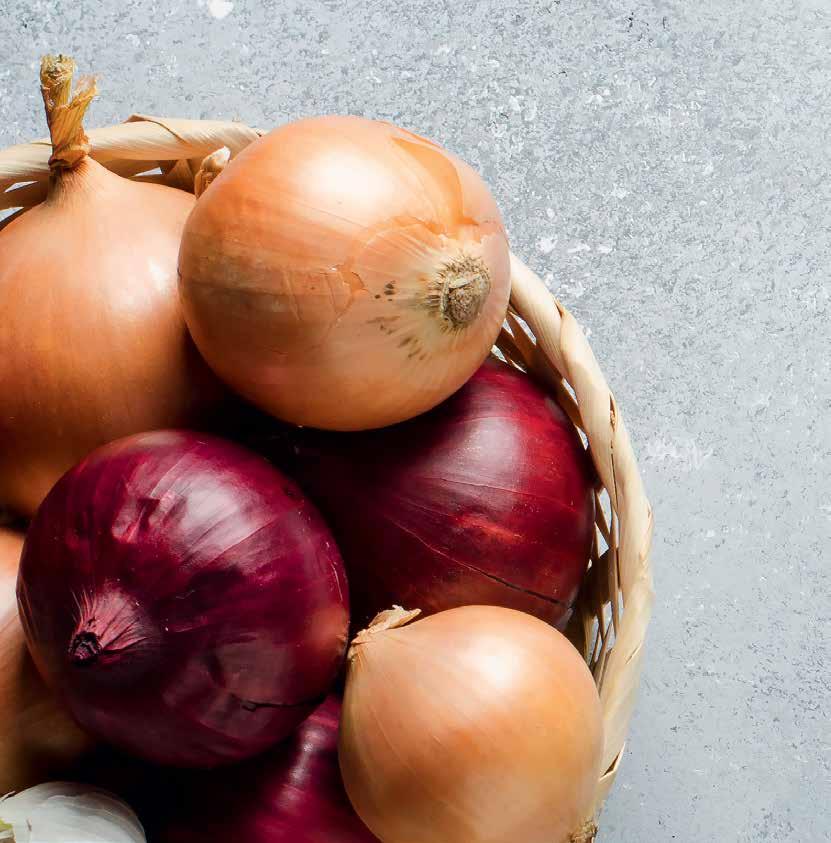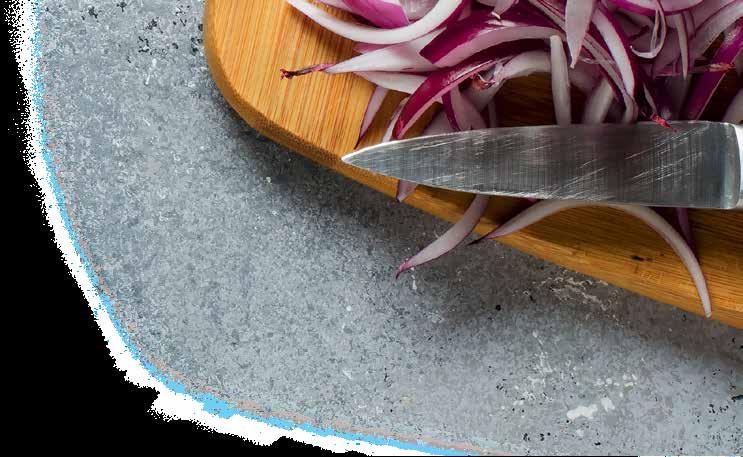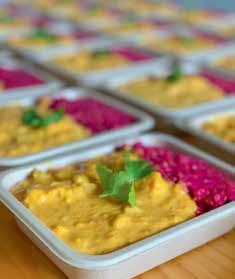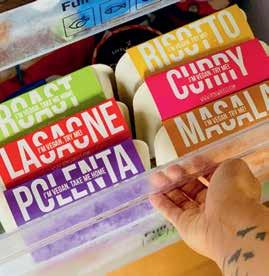
2 minute read
Nutrition
The Humble Onion

WORDS RACHEL HART

Without a doubt, one of the most important ingredients in a cook’s arsenal is the humble onion. The world’s most universal food, onions are sautéed with garlic, slow cooked and caramelised, marinated in vinegar or thinly sliced to add flavour, depth and crunch to our meals.
Onions are part of the allium family of herbaceous flowering plants, a group that also counts garlic, shallots, leeks and chives as members. Thought to have originated in Asia, today onions are so ubiquitous that most countries grow their own. And if you’ve ever driven past Pukekohe on a windy day, you’ll know that New Zealand certainly grows enough of the bulbous vegetable to satisfy our own needs. If you’re having trouble reaching your five a day, it may be valuable to learn that onions can be counted in this mix. Indeed a vegetable, one onion contains around 10 percent of your daily vitamin C, B6 and manganese. Their chromium content helps regulate blood sugars while their flavanoids help lower LDL (bad) cholesterol. Onions also contain quercetin, a potent antioxidant with a whole host of health promoting properties that help reduce inflammation, ward off cancer and encourage healthy aging. Slicing into a fresh onion creates a chemical reaction that forms sulphur compounds responsible for both the pungent smell and the stream of tears running down your face. These sulphur compounds help protect against cancer, lower blood sugar levels and cholesterol and protect your heart by breaking down blood clots. The catch is these compounds are destroyed by heat, giving those who tolerate raw onions a clear health advantage. Among all these benefits, standing out from the pack is the onion’s influence on gut health. Arguably better for our gut flora

than most fruits and vegetables, an onion’s prebiotic fibre provides food for the healthy bacteria living in the intestine to grow and flourish. Gut health impacts on our digestion, immune system and even mental health, so feeding the good bacteria is very important. The onion’s healthful properties are more concentrated in their outer layers, so avoid over-peeling onions to maximise their healthful effects. Best practice is to peel off the papery layer and use all the fleshy outer layers found within. Onions can be the hidden saviour of a dish—think risotto, pies and guacamole—or the undeniable star, as in French onion soup, caramelised onion frittatas and onion rings. They can be a garnish, a relish or a topping. Thanks to their versatility and nutrition, it’s easy to see why the great Julia Child once declared, “I cannot imagine a world without onions.”



Rachel Hart
Hailing from Canada, Rachel has fallen in love with life in the beautiful Bay of Plenty where she is a freelance writer with a passion for healthy food. She splits her time between telling people’s stories, creating web content and experimenting in the kitchen.


Wholesome plant-based meals delivered to any doorstep in New Zealand










